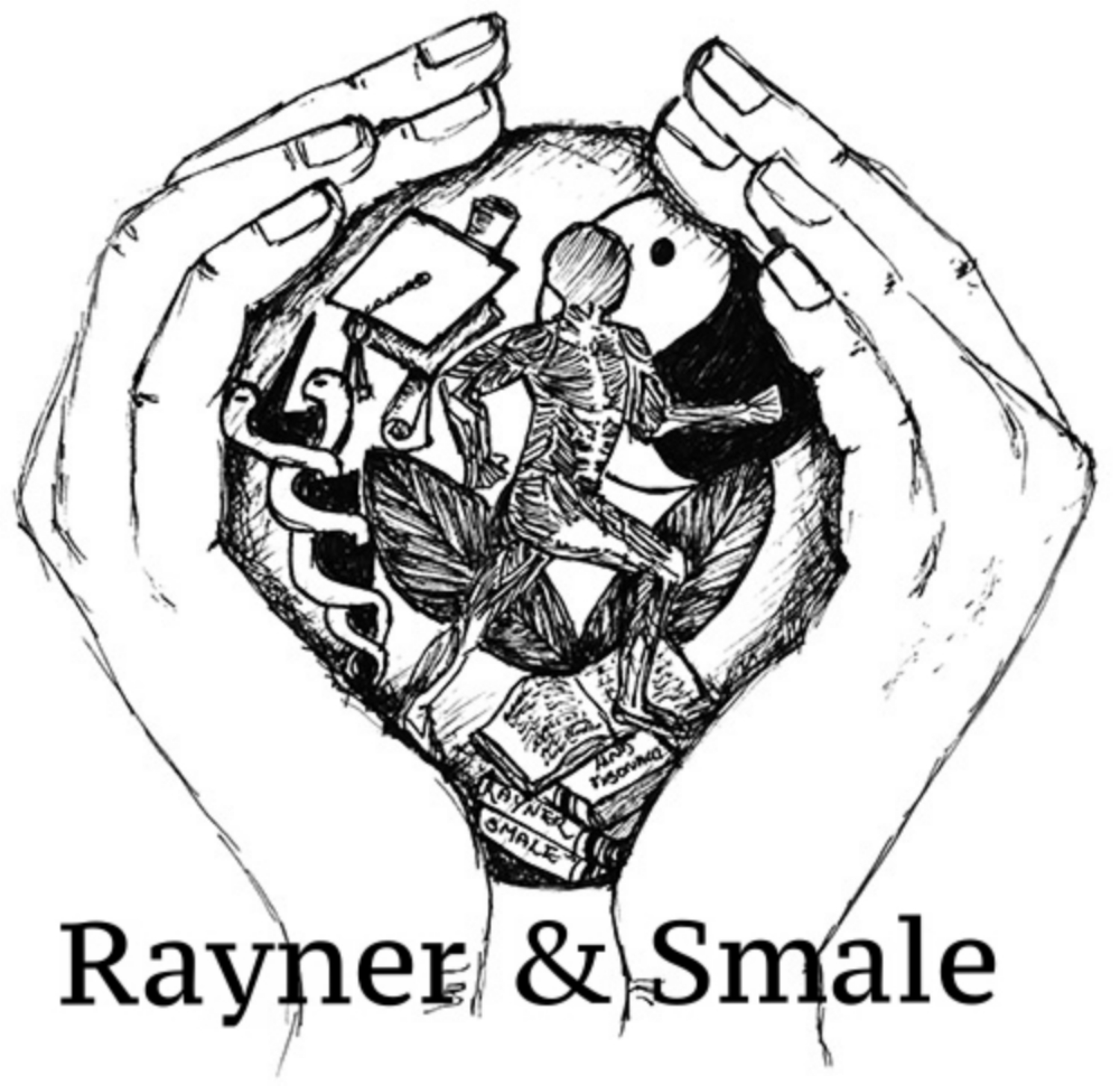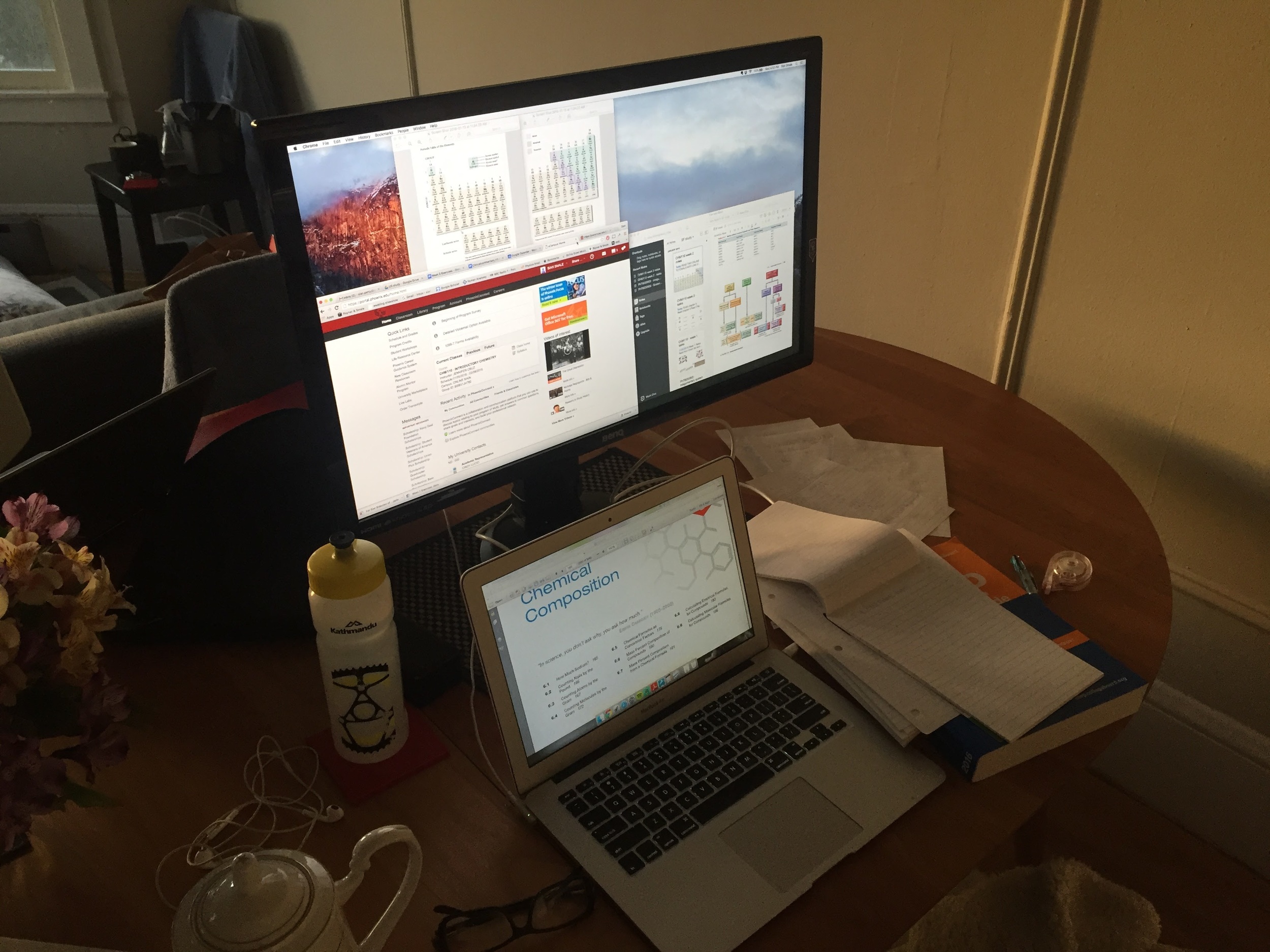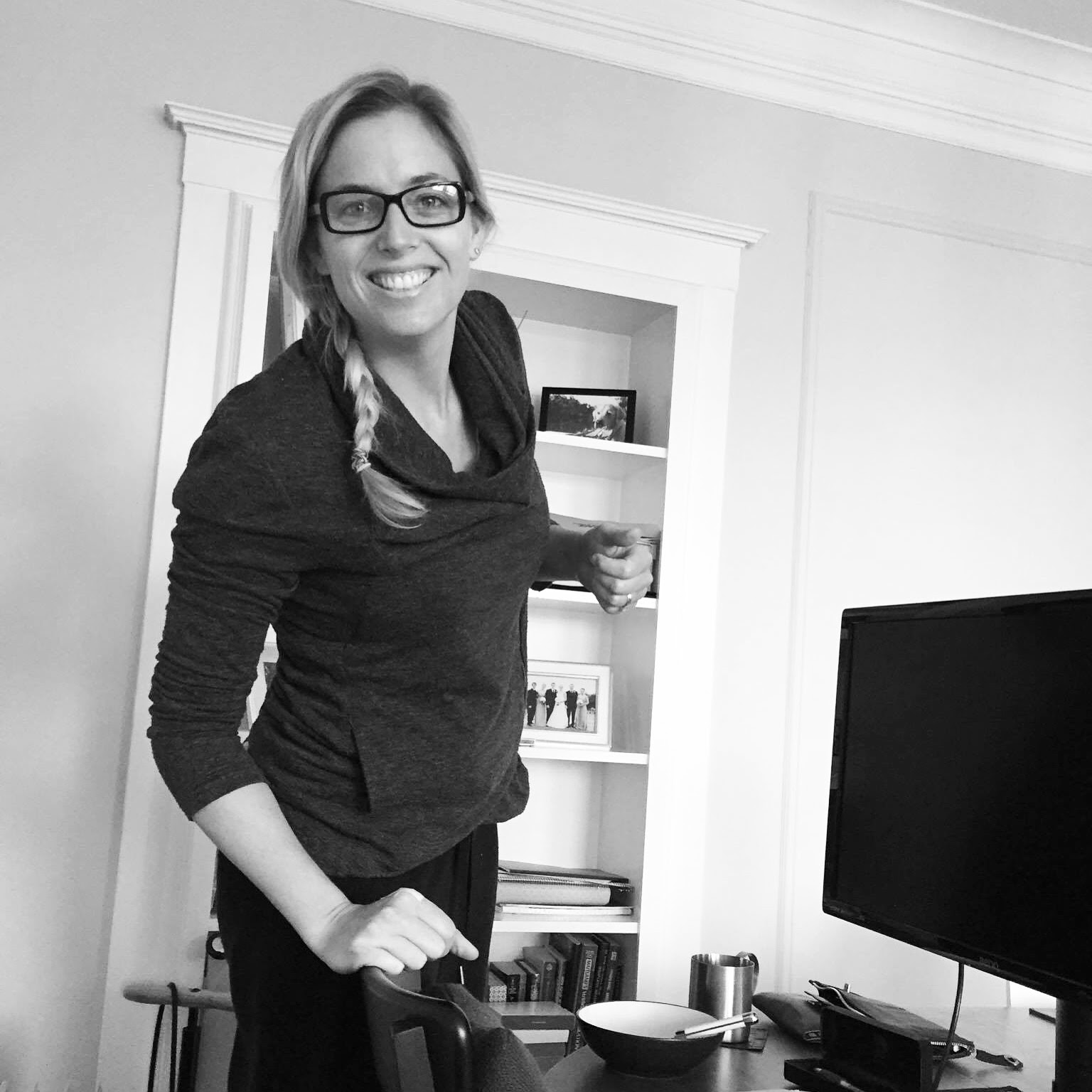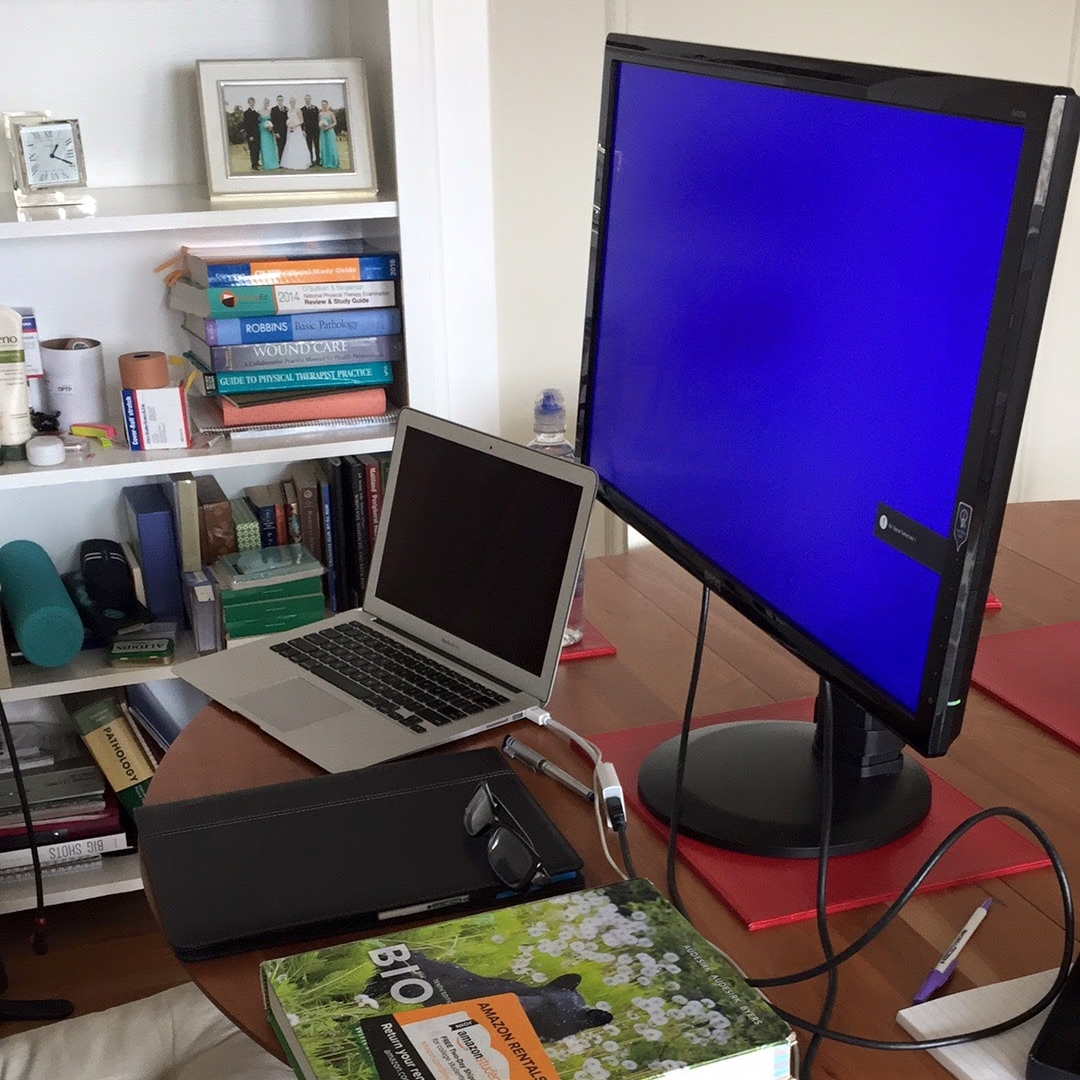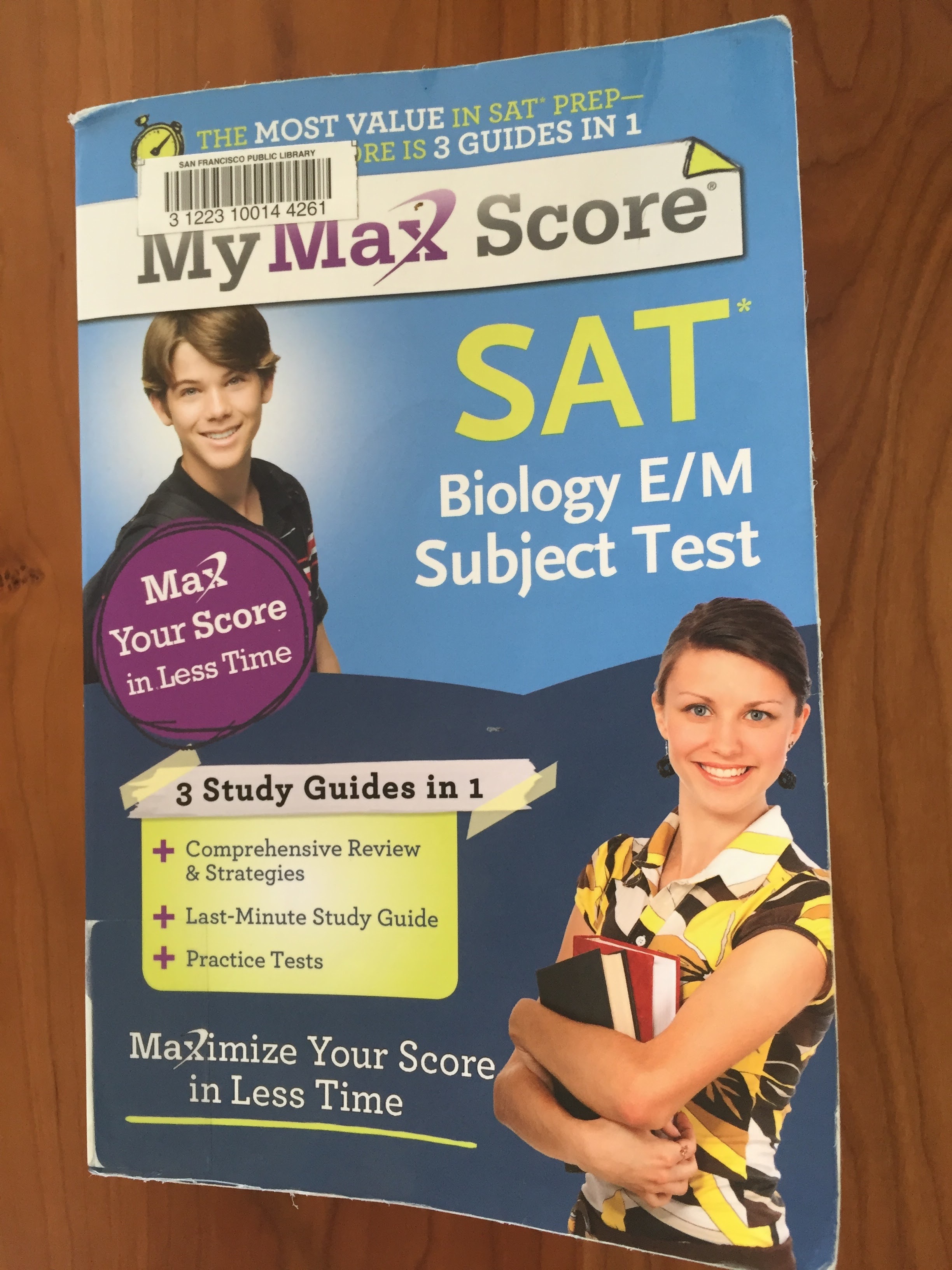Physical Therapy in Californian Part 2 - gaining a certificate of professional equivalency
After several long and hard months of study I have finished the study requirements needed to gain a certificate of professional equivalency. In November last year I wrote a blog about the stages involved for Australian Physiotherapists (an probably other nationalities too) to go about apply for a Physical Therapy licence in the US.
It took my 15 months to work out how to begin the process and this next stage - making up the educational deficits to prove my education is equivalent - was not nearly as long as I thought. It was hard and took many long days of motivated self-study but in the grand scheme of things - this is a completely achievable goal and barrier to overcome.
Don't let studying get in your way of re-qualifying in the US. I have been surprised by how much I have learnt and how much more prepared I feel to move on to the next stage - studying for the National Physical Therapy exam. This blog is a break down of the past few months - what I had to study, how I went about it, things I messed up that you can do better on, and what the outcome was.
Timeline
- June 2015 - application for credential evaluation with FCCPT
- November 2015 - results received from FCCPT (education not equivalent and further study required)
- November 2015 - applied for PLAN process a lovely Physiotherapist helped me decide what I needed to study and where this could happen
- January 11th - I began my first classes
- May 14th - final exam
- June 1st - my re-evaluation began
- June 27th - re-evaluation complete
Overall I completed 8 subjects in 4 months. Considering that I travelled/worked for 1 month during this time, it actually makes it 3 months. During that time I taught Pilates on 3 days of the week and then studied most weekends and the remainder of time during the week. I was initially aiming for the July exam (the NPTE only happens a few times a year and you need everything ready months before hand to submit the paper work). If I had known I was not going to make the deadline I would have spaced this out a bit more. But, it is achievable in 12-16 weeks if you go at it hard.
WHAT EACH SUBJECT ENTAILED
Basic life support - this is a 3 hour course run through safety seminars and a great refresher of CPR training. Didn’t cost > $100 and I enjoyed covering the basics again.
Examination and evaluation of the Integumentary system
- Online through the St Augustine University in Florida.
- 12-week, online, self-paced work
- Who every thought learning about burns and wound management would be so interesting?
- This course taught me a lot about skin conditions that would be considerations for treatment or contraindications/precautions (very relevant for dry needling, hydrotherapy, etc.)
- It also taught me signs to look out for when recognising underlying skin conditions that might elude to a non-musculoskeletal contributing factor.
- Bought my text book through Amazon (all of the Physical Therapy subjects had their text books available on Amazon).
- Takes 3-4 weeks to get results for these subjects so finish them first.
- It also takes a few weeks to get results for each assignment, therefore I was staggering my submissions to get the results back of one before submitting the next.
- Overall it took 3 weeks to finish the 3 online subjects which was very very busy. I would recommend taking about 8 weeks to finish them.
- 5 assignments:
- 2 very tough, timed quizzes on burns management and wound management.
- Wrote a short essay on selective debridement of wounds and learnt how to manage things like infected bites, road rash, scabbing and scarring and then pressure ulcers.
- Wrote 2 essays - one on a clinical case study for pressure ulcer care which was very interesting and challenged my clinical reasoning a lot, and wrote an article critiques (of your choice) for which I wrote about factors predicting pressure ulcer risk assessment so this linked into my case study very well. I wrote about pressure sores because it was an area I have little knowledge in and thought it would be great to learn something new.
Examination and evaluation of metabolic and endocrine disease
- Online through the St Augustine University in Florida.
- 12-week, online, self-paced work.
- This subject crossed both metabolic and endocrine disease and was a wonderful way to sharpen up my skills in differential diagnosis.
- 4 asseignments/essays:
- 2 article critiques (on topics of your choice) - One I wrote was about the differential diagnosis of metabolic conditions that result in carpal tunnel syndrome and another on upper extremity disability in carpal tunnel syndrome across a range of metabolic diseases.
- 2 case studies (choosing from the 3 available) from which I wrote about hypothyroidism and myxoedema coma resulting from a total hip arthroplasty, and the chronic pain management of a patient with psoriatic arthritis.
Screening, consultation and delegation
- Online through the St Augustine University in Florida.
- This was a subject about learning more about American and Californian Physical Therapy Law which was again quite valuable.
- 12-week, online, self-paced work.
- Each of these online courses through St Augustine was ~$1300.
- 3 assignments/essays:
- One assessing 2 clinical scenarios around supervision and legal requirements when working with physical therapy assistants and aides.
- One essay interviewing a local physical therapist who works in non-client related services and understanding how the role of a PT differs between client-related and non-client related consultation.
- One essay using the current APTA screening tool to discuss a case study of a patient and what factors of their initial screen determined if they were suitable/not suitable for physical therapy and why.
Chemistry
- 5 week online accelerated course - which equates to one year of college Chemistry in five weeks!
- Took about 30 hours of study a week so do this one all by itself.
- Cost depends on university - mine was $1000-$1500 for all the materials, online chemistry lab and textbook.
- Khan academy saved my life - thank you Sal!
- Results occur in 2-3 weeks to get a full transcript.
English
- Self studied over 1 week - only did the CLEP practice exam and I would suggest studying a bit more for this one. It was a lot of grammar and rules of English writing which is not something you often think about when it is your first language.
- Cost $85 to sit CLEP exam plus a bit more for study resources.
- Takes 4-6 weeks to get results to finish towards the beginning. Not knowing this is the reason I missed the deadline for the July exam.
Biology
- Self studied over 4 weeks equating to a year long course of College level Biology.
- Cost $85 to sit CLEP exam plus a bit more for study resources.
- Got all books from library and Amazon rentals.
- Watched a lot of Khan academy videos.
- Results occur immediately and then get posted to FCCPT within 2 weeks.
Maths
- Self studied over 2 weeks equating to a year long course of College level Mathematics.
- Cost $85 to sit CLEP exam plus a bit more for study resources.
- Got all books from library, especially exam guides for passing high school and college level maths.
- Done without a calculator so the exam is more about mathematic principles than complex arithmetic. You learn about imaginary numbers, functions, algebra, probability, statistics, logic, and geometry.
- Results occur immediately and then get posted to FCCPT within 2 weeks.
Suggestions
CLEP exams:
- Don’t purchase CLEP exam ticket until you know when you want to take them because they expire in 6 months.
- Generally your end score needs to be 50/80 to achieve the credit points.
- Don’t buy the official study guide - as the questions are replicated in the PDF exam guide which you buy online. This will save you money.
- Be aware that the exams are the level of knowledge of first year college level meaning that you have a lot of content to cover if you want to sit these exams. This was my mistake - not leaving enough time. I managed to learn the content but it was very demanding and took many 12 hour days to cover.
Online subjects:
- Many of the subjects you need to study can be done online which is great.
- 5 week course are crammed courses so be careful not to take too much on at one time.
- The physiotherapy course are self paced where as chemistry was timed and had a strict dead line. Therefore, be sure to ask these questions when you select the specific university and find out what your study requirements are going to be.
- If you have already got a SSN you can then begin these subjects anywhere.
- I began the chemistry and 3 PT subjects at the same time - this was silly - stagger the start but also begin preparing for CLEP exams early on.
- Realistically it will take time! Make time or you become a hermit like me :)
General tips:
- All the text books I needed where available on Amazon and some where even available for rent which means you can return them and pay a fraction of the price. Just keep the original package so you can send them back.
- Become a good listener of Khan academy but don’t use it as a starting point as it is extremely detailed and a great resource for expanding knowledge not starting knowledge.
- I began with “Biology for Dummies” which was an absolute life saver.
- I also used the Unit 3/4 exam guides for VCE (Australian High School final year) to understand where my knowledge base should be for the CLEP exams. These exam guides are relatively inexpensive to buy and quick to read. They are well explained and have heaps of questions. From there you can then go back to the CLEP sample questions, identify where further knowledge is required and then use text books and khan academy to ramp up your knowledge.
- I also used the SAT study guides to compare my knowledge from Australia to America and gain a better understanding of the curriculum.
- Scannable is an amazing app (although there are probably many) for scanning in documents and then emailing them. For Chemistry I had to hand write a lot of my assignments that needs equations and stoichiometry and then I just snapped them on my phone. Scannable turned them into a PDF and I could easily submit the homework online.
Things that helped me complete the work quickly
- Knowing how to analyse an article critique and what you are looking for (this comes from University days and practice with previous assignments).
- Having endnote on my laptop and knowing how to use ‘cite while you write’ for different referencing styles (you'll loose a lot of marks getting APA and AMA mixed up).
- And the things I have already mentioned: scannable for homework, Amazon prime for renting text books, membership at San Francisco public library (source for many of the biology and mathematics books and practice exams), Khan academy for chemistry and biology classes
- Second screen for reading and researching essays.
- Coffee :)
THINGS I WOULD DO DIFFERENTLY
- Chemistry, Biology, Maths all in dependent blocks and leave more time to finish work. Chemistry and Biology were the hardest - this probably reflects that I needed enough credit points to equate to a full year of college chemistry and biology and I have 5 and 4 weeks to learn all the content. Definitely don’t study anything else during these subjects.
- Start online PT subjects 2 weeks apart so that if you needed the full 12 weeks you didn’t have 13 assignments due in the same week.
- CLEP english exam: study for this and do it at the beginning because it takes up to 6 weeks to get a result and this is the reason I didn’t make the cut off for the July exam
- Don’t buy CLEP book - just get the PDFs.
- Always sit the CLEP exams during the day
- Expect this to take time and don’t think you can speed up the process - it took longer than I thought for everything and it takes a lot of planning to know how all the deadlines mash together and when all your transcripts will be ready for your re-evaluation.
- You can begin them all at once if you can juggle that much study but I wouldn't. Maybe take science subjects on individually and then stagger start the PT ones (because you need time between each assignment submission to get your results back).
- Know when the NPTE is and when the cut off date for that is, backtrack to when the documents are needed for your requalification and then calculate how much time it takes to get your results.
- I made the mistake of thinking that the CLEP exam results are available immediately and in fact English takes 4-6 weeks to receive a score. That simple error means I won’t sit the exam in July but instead hopefully make the October intake. This is obviously very disappointing and could have been avoided if I have just started English 2 weeks earlier.
What the outcome was & what lies ahead...
I received my certificate of professional equivalency at the end of June, 6 months after beginning my study, which is much much quicker than I ever anticipated. At this point in time it is 12 months since the credential evaluation began. I hope this shows you that the phase of making up educational deficiencies isn't actually that bad. I learnt lots of fun new trivia and hopefully got my study brain in gear for the NPTE. I'll keep you all posted on the 3rd phase - sitting the Jurisprudence exam and NPTE exam (which will hopefully occur in October). The ultimate goal is to be licensed by the end of this year, which will be just over 2 years for me but only 18 months since I worked out how to do it.
Sian :)
Here are all the books I used throughout my studies - many of which can be loaned from your public library, rented or purchased from Amazon.
